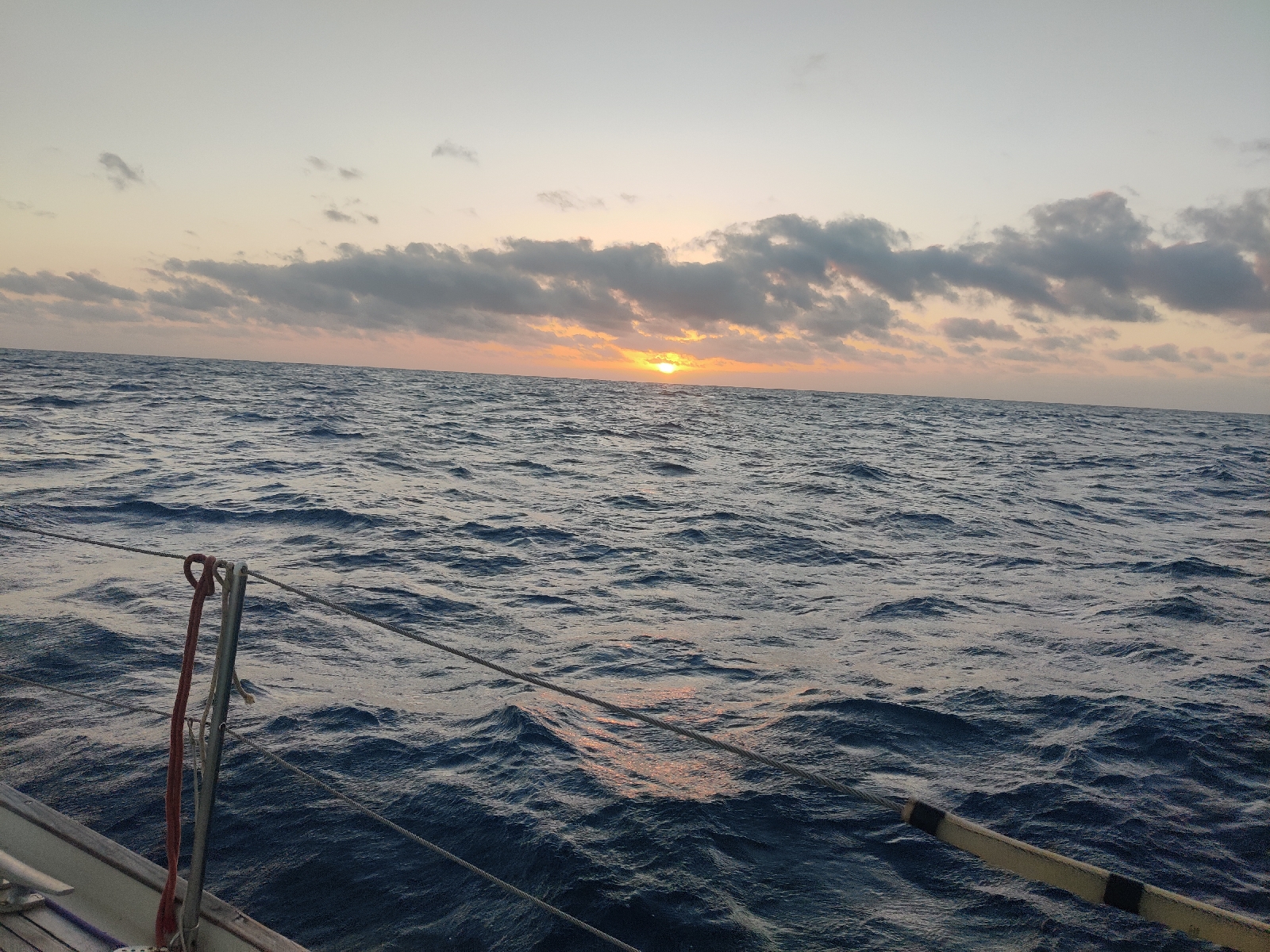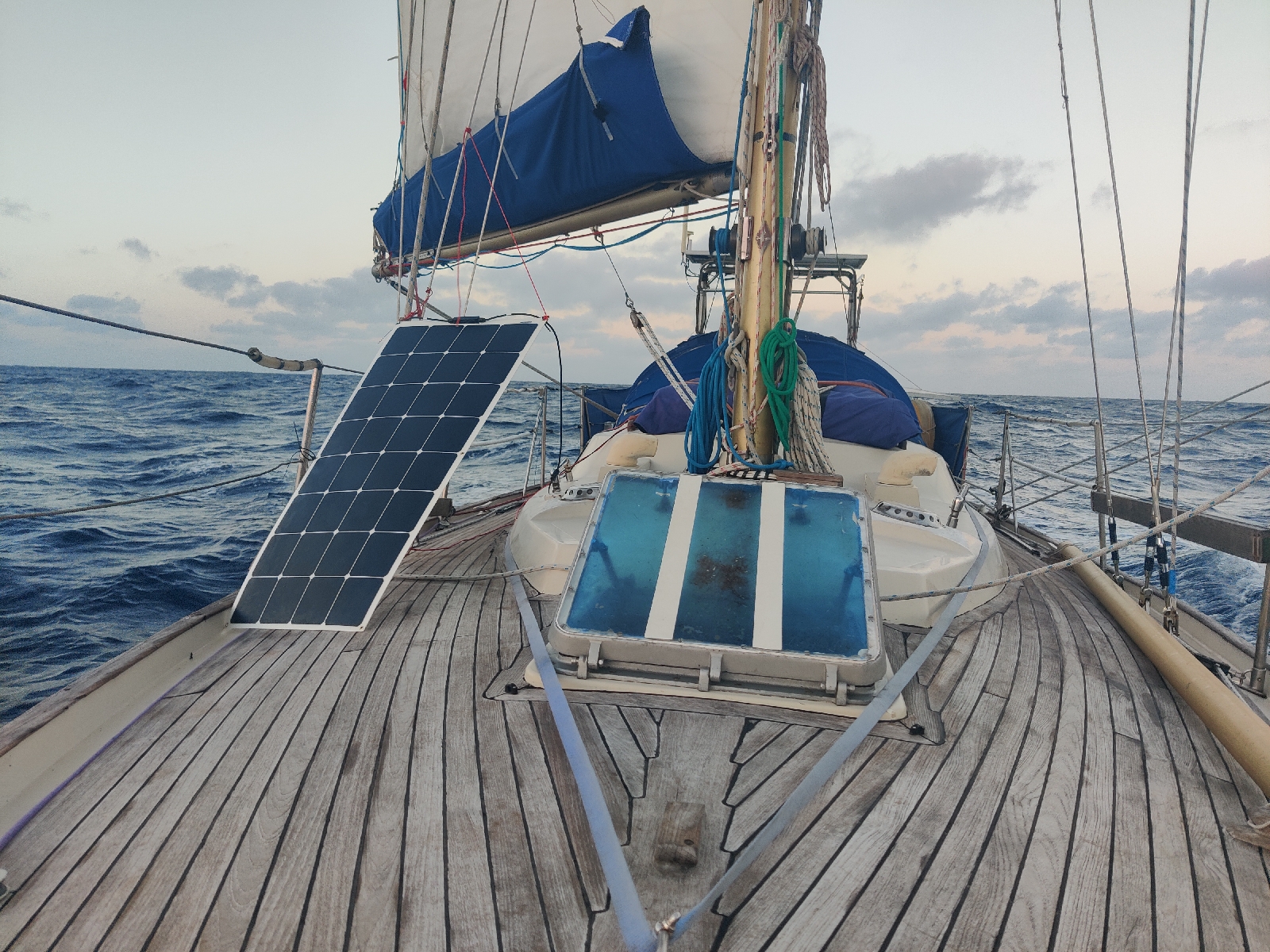After a leisurely cooked breakfast by yours truly...
and general slobbing around and catching up on our comms via Starlink, we finally got the dinghy inflated and went ashore.
A "boat boy" minded our dinghy and deposited our rubbish for the princely sum of 1€. I thought the place was OK even if "charming" might be a slight exaggeration.
The Mate however continued to be unimpressed, although he did have the good grace to row back on his previous description of "shit hole". His negative outlook was partly informed by the fact that we had arrived in the Cape Verde with no valid currency (actually Mick had 10 € and I had 2€) and it appeared that we had arrived in a cash only economy. Also bothering him was the fact the wound to his foot first sustained in Las Palmas, had, after a long period of dormancy, reared its ugly head (or should that be foot) again. He was as a consequence rather preoccupied by the potential consequences of this development and was clearly in no mood to appreciate the unique charms of Porto Palmeira.
Our first job on landing was to check in with the immigration authorities. Following the guidelines provided in our 10 year old pilot and by Noonsite (a global yachty website) we repaired to the Port Captain's office to check in. He shook his head pleasantly and walked us round to the local police station and explained we needed to check in there once it had re-opened. He couldn't say that would be though!
We therefore found a local bar and burned €3 of our €12 on two small beers. Originally we thought it was €3 each and were very relieved to discover our mistake.
After further verbal faffing over our plans, we resolved nothing other than to try and check in. By this time the Police Station was open and despite initial confusion about which of the two officials we should talk to we completed our check-in painlessly enough - with only one one page form having to be completed. Unlike 10 years ago, they were now operating a one stop shop for checking in which was a great relief to us. The only downside being they hold on to our ships registration document until we leave and check out.
After a walk around the locale we headed back to the boat. A British flagged Wharram Catamaran was nearby and we considered stopping for a chat but no one was home. Also nearby was an Irish registered boat of similar vintage and type to Bonny. She turned out to be a Nicholson 32 and was 10 years older than Bonny!
Just after we got back to Bonny the crew of the Wharram Cat got back so we went over to say hello.
Alexi a Frenchman and Charlie a Brit, were probably in their 30s and were a fascinating couple. He is a professional diver and she a Marine Biologist (and freediver in her spare time). They were out diving as we made our approach yesterday and said Bonny made a wonderful sight.
Their boat is their home and they work as they travel; running diving courses and undertaking marine biology research wiith the local communities they visit.
Just as fascinating is the story of their wonderful Wharram Catermeran - 'Ferrel'. They found her wrecked and abandoned on a beach in the Algarve a couple of years ago, rescued her and now are sailing her wherever their fancy takes them. They plan to visit West Africa next before heading for Brazil next May.
Shane from the Nic 32, a wonderfully laid back west coast Irishman from County Mayo, is single handing and has spent the last year or so around the Canaries and the Cape Verde, having left Ireland three years ago. He may cross the pond in January after flying home to attend to his business (I didn't find out what that was).
We have now made up our minds and will head for Mindelo tomorrow - about a 24 hour passage.












